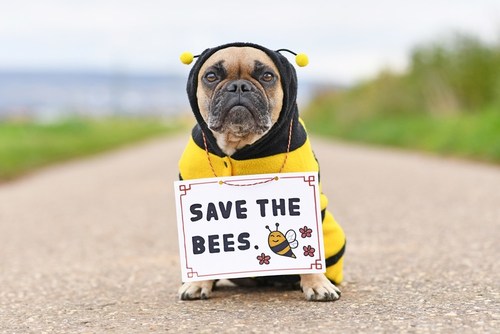Saving The Bees One Tree at a Time
Bees have been dying in record numbers, and scientists are scrambling to find out why. As the human population continues to grow and agricultural areas continue to expand, bees may not be able to survive if something isn't done quickly. While there are many solutions being proposed, one of the simplest ways that people can contribute to saving the bees is by planting trees. Trees provide habitat and food for bees, allowing them to thrive instead of just barely surviving until the next meal source comes along. At Backyard Farming Supply, they believe that this fight to save the bees is one of the most important of our lifetime.
Why Are Bees So Important?
Every third bite of food you eat is thanks to bees, which pollinate 80% of our world's crops. The list of things bees provide for us is long: not only do they fertilize plants and flowers, but they also produce honey, royal jelly, and propolis—all valuable assets in modern medicine. And bees are essential for reproduction: In fact, about one-third of the human diet comes from plants that require bee pollination to survive.
If You Care About Nature, Take Action
To save the bees, it takes action from everyone; big and small. Take action by donating to an organization that works towards saving the bees and other species, such as the Pollinator Partnership or 1% For The Planet. For your part, plant flowers and trees that attract bees.
Act Locally - Go Native
You can use resources like those offered by Xerces Society to find out which native plants are best suited for attracting pollinators in your area and begin replacing your garden with them. There are several plants that most people wouldn't expect to be beneficial to pollinators—but they are. Lavender and tomatoes come to mind.
Use Natural Nurture
The first step in saving our pollinators is to ensure they have natural habitats to live in. If you're an avid gardener, there are several ways you can encourage bee health by using organic methods: use natural fertilizers, such as compost and mulch; opt for organic sprays and pesticides; make sure plants are placed organically; and even plant bee-friendly plants to ensure bees can access food resources year-round.
Talk to Your Neighbors About Nature
Encourage your neighbors to use their yards to plant trees and encourage flowering plants and fruit-bearing plants. Inform them of the potential danger they may put on the environment by using pesticides in their lawns. Most homeowners use garden products that are not environmentally friendly and hurt the bees, butterflies, and other animals that pollinate flowers. Explain to them how easy it is to help with some simple changes.
If you want to learn more about how to protect, promote and proliferate bee populations where you live, contact the good people at Backyard Farming Supply. They have all the tools you need (including information) to help you succeed.



Leave a comment